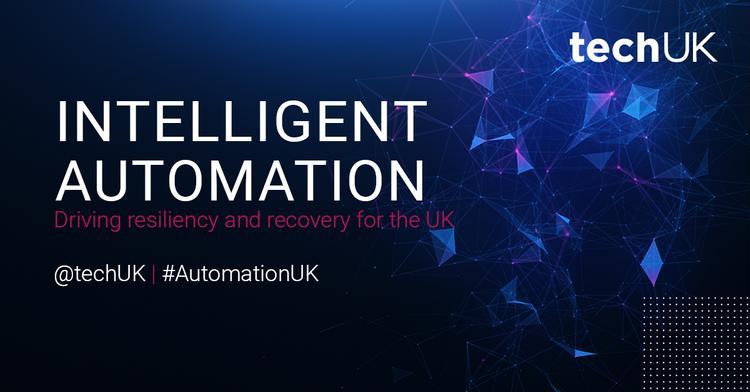Securing Intelligent Automation and Automating Security Processes

Intelligent Automation has the ability to transform our society, bringing in new productive technologies and allowing our people to focus on the strategic issues that really matter. However, it can only do this, if the embrace of Intelligent Automation is done in a safe and secure manner, protecting data and intellectual property, and ensuring that we have mitigated routes to attack.
The creation of a new automation network must proceed in phases to ensure that cyber-security is observed. Work must always be conducted keeping in mind the cyber-security risks of a particular network and how this interplays with the company’s current cyber security strategy. As Daniel Lewis argued in a blog for techUK’s Cyber Week OT and Automation Networks have traditionally been air-gapped but as we move towards Industry 4.0 the increased connectiveness increases the risk to the automation environment. Cyber resilience is therefore of growing concern for critical national infrastructure and industrial control systems providers and a proactive approach must recognize the convergence of the IT and OT worlds, especially when it comes to automation. With this in mind, organisations can reap the benefits of intelligent automation and other next generation technologies and do so securely. With security baked in from the start, it can be a powerful enabler in assisting the IA industry achieve their future visions.
However, while it is important that we ensure the secure adoption of intelligent automation, intelligent automation can also help improve our cyber defences and IBM suggested in 2019 that automation is the next big step in cyber security. Organisations now face advanced threats, not from human hackers, but from automated bots and even the best security team can struggle to cope with the sheer volume of incoming threats.
Consequently, automation is becoming a powerful and effective component of cybersecurity. Indeed, the vast majority of executives report shifting their network security budget into technologies that employ machine learning and automation. The need to protect increasingly heterogenous infrastructures, a shortage in cybersecurity talent and increasingly dangerous cyber threats were indicated as the primary drivers for this shift in priorities and promotes the use of automation in cybersecurity processes.
Thus, cyber companies need to automate reporting and responses to reduce the burden on the already overstretched workload. Intelligent Automation takes this a step forward beyond single mitigating actions. In other words, IA delivers integrated and connected cybersecurity responses that can react to new, unknown threats by intelligently triggering multiple actions. In essence, IA weaves together the automation of routine processes with the intelligence to comprehensively mitigate novel threats and is therefore an excellent tool to help fill the gaps left by stretched cyber security teams.
If realized, there can be a strong symbiotic relationship between the Cyber and IA communities, with cyber security ensuring that IA is kept secure and IA improving the processes within cyber security and supporting an overstretched workforce. techUK is here to help bridge this gap and bring together the two communities.
You can read all insights from techUK's Intelligent Automation Week here

Rory Daniels
Rory joined techUK in June 2023 after three years in the Civil Service on its Fast Stream leadership development programme.

Ella Shuter
Ella joined techUK in July 2025 as Junior Programme Manager for Emerging Technologies.

Laura Foster
Laura is techUK’s Associate Director for Technology and Innovation.

Elis Thomas
Elis joined techUK in December 2023 as a Programme Manager for Tech and Innovation, focusing on Semiconductors and Digital ID.








